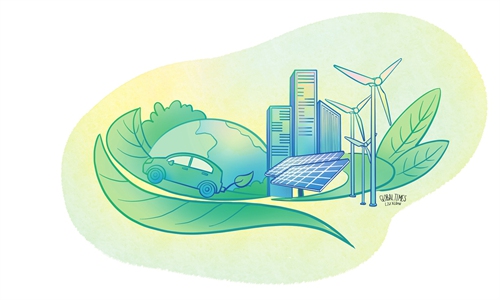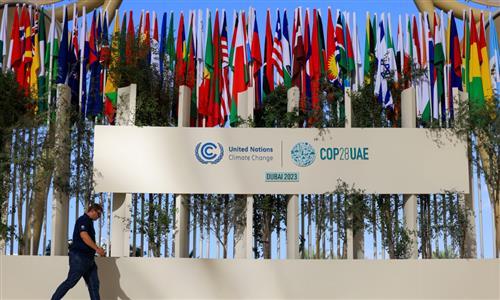You can call this a state of permacrises, a series of cascading shocks that seem to be building up to a bigger shock sometime in the future.
In finance, the year began with the collapse of Silicon Valley Bank on 10 March 2023, followed by Signature Bank. The Fed and FDIC (Federal Deposit Insurance Corporation) acted fast to guarantee all deposits to stop what is now called “Twitter Deposit Runs” against banks. In Switzerland, Credit Suisse was taken over by UBS on 19 March, after the bank lost nearly US$ 75 billion worth of deposits in three months. Swiss financial credibility was hurt when Credit Suisse AT1 (Tier One bonds) bond-holders became outraged that they should suffer write-downs ahead of equity holders.
Although prompt action by the Fed and Suisse financial authorities averted global contagion and restored calm to financial markets, the Fed hiked interest rates four times in 2023 to 5.25-5.5% to tackle inflation. This month, gold prices touched a record high of US$2,100 per ounce, signalling anticipated inflation abatement, but escalated geopolitical tensions.
In technology, 2023 marked the seismic arrival of generative artificial intelligence (AI), through the public launch of ChatGPT in November 2022. Commercialized AI is considered the next big thing after the internet, sparking off a US tech stock rally, led by the Magnificent Seven companies in AI-related software and hardware. The rally averted a year of portfolio losses in financial markets hurt by interest rate hikes.
In trade, the latest UNCTAD Global Trade Update found that global trade will shrink by 5% to US$ 30.7 trillion in 2023, with trade in goods declining by nearly US$2 trillion, whereas trade in services would expand by US$500 billion. The outlook for 2024 is pessimistic because trade issues are now geopolitical, rather than purely market-driven. Global supply chains are either decoupling or de-risking to avoid possible sanctions which have been imposed for geopolitical reasons.
Geopolitics dominated headlines in 2023, as diplomacy played second fiddle to the militarization or weaponization of everything.
The biggest risk faced by businesses today is national security risk, in case companies or financial institutions are caught in geopolitical tit-for-tat arising from binary differences in values. Where national security is concerned, the business must bear all the costs of supply chain restructuring with no questions asked, or face possible existential shutdowns.
War broke out in Gaza/Israel In October with a scale of civilian slaughter more horrific and intense than the Ukraine war, which began in February 2022. The latest war count to June 2023 by The Armed Conflict Survey 2023 (1 May 2022–30 June 2023), showed global fatalities and events increasing horrendously by 14% and 28% respectively.
The authoritative Stockholm International Peace and Research Institute (SIPRI) reported that 56 countries were involved in armed conflict in 2022, 5 more than in 2021. Three (Ukraine, Myanmar and Nigeria) involved 10,000 or more estimated deaths, with 16 cases involving 1000–9999 deaths. Expect more conflicts when natural disasters hurt food, water and energy supplies.
As 100,000 or so delegates leave the United Arab Emirates at the end of the COP28 this month, the UN painted an upbeat tone that the Conference marked the “beginning of the end” of the fossil-fuel era. Scientists confirm that we have already passed the point of being able to limit carbon emissions for the average global temperature to remain below 1.5 degrees Celsius above pre-industrial levels. Most studies show that if most governments fail to meet their current commitments to NetZero, the planet will be struggling with temperatures above 2 degrees Celsius, meaning more natural disasters, rising seas and/or migration/conflicts. Every three weeks, the US has experienced at least one natural disaster costing more than $1 billion in damages.
As one cynic said, natural disasters are where the rich just pay in money, but the poor pay in their lives.
Putting all these mega-trend micro-disasters together suggests that a mega-system disaster may be on the cards. Historically, these seismic-scale disturbances are settled through a massive recession, like the 1930s Great Depression, or wars, which wipe out debt and make everyone poorer.
So far, the world has neglected to address these looming issues by either denying or postponement - printing more money and incurring more debt. Painkillers do not fix structural imbalances.
As my favourite poet TS Eliot said, the world ends not with a bang, but with a whimper. The world is in permacrises, with no one fully in charge. Democratic governance is in flux when no one can agree on the problems, let alone the solutions.
2024 will see some decisive but messy elections, especially in the US where both Presidential candidates may either be impeached or convicted by then. This cannot auger well for everyone, because 2023 marks the turning point when the US lost the respect of the Global South over its catastrophic handling of Ukraine and Gaza, both of which will be fought to the last Ukrainian or Palestinian. The morality of allowing other people to fight and die for one’s benefit shows not hypocrisy but hegemonic-scale cowardice.
The bottom line is that there is no shortage of technology or money to deal with the global existential threats of climate change and social imbalances. We cannot align policy intent (what politicians say they will do) with the reality that current policies are not delivering.
If man-made or natural calamities are looming, do we mitigate or adapt? On a single planet, we can run but not hide. So each of us must decide to do what we can, rather than relying on politicians to fix themselves, let alone our problems.
There is a wise saying about Christmas charity: give with warm hands. Do that now, or we will be giving with boiled hands or none at all.
Best wishes for 2024.
Andrew Sheng, Asia News Network




















